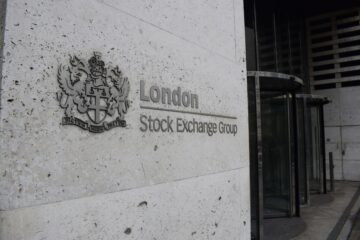British American Tobacco Plc. (BATS)—market cap as of 28/10/16: £87.26bn
Reynolds American, Inc. (RAI)—market cap as of 28/10/16: $78.16bn
Introduction
On October 21, 2016, British American Tobacco (“BAT”) delivered a non-binding merger proposal to Reynolds American Inc. (“Reynolds”). Through this $47bn deal, BAT will acquire the remaining 57.8% of Reynolds’ shares it does not currently own, thus creating one of the strongest private players of the tobacco industry. The acquisition values Reynolds at $56.60 per share, a 20% premium over its closing price on October 20, 2016 and it is expected to deliver accretive EPS and dividends per share.
Industry Overview
In the past few years, the tobacco industry has been driven by a combination of price and product diversification along with new taxation and regulation.
The current market leader, with 44% market share, is China National Tobacco, the Chinese state-owned manufacturer of tobacco products, which operates in a monopolistic market. The biggest private players are Phillip Morris International, BAT, Japan Tobacco and Imperial, which together represent approximately 39% of the total volume shares.
In 2015 the value of the cigarettes market amounted to $698.5bn, a decline from the previous year mainly driven by a 2.1% decrease in volume sales. Despite this slowdown, cigarettes prices increased by 5.2%, thus partially offsetting the reduction in volumes. Vapor products have also witnessed a strong value growth of 32.3% and amounted for a total global value of $8bn. This new product category is forcing the big players to further diversify their portfolio and consequently, focus investments on R&D activities.
However, among the top 15 global markets, the majority is projected to incur in a slowdown in revenues over the next years. In particular, the Chinese, Indian and German market will witness a significant decline. This might force players to look for further consolidation to maintain competitiveness.
About British American Tobacco
Founded in 1902, British American Tobacco is a British tobacco company based in London. It has been very active in the M&A market over past years and it is the world’s second largest private player in the industry, with dominance in Latin America and Australasia. It offers a product portfolio that covers each tobacco category.
BAT operates in more than 200 markets and counts more than 50,000 employees worldwide. In 2015, it generated a turnover of £42,052m (down by 5% with respect to 2014) mainly driven by sales from Dunhill, Kent, Lucky Strike and Viceroy brands.
In response to the decline in demand in key regions such as Europe, the company decided to adopt an aggressive pricing strategy which contributed to maintain satisfactory volume performances over past years. This strategy allowed BAT to maintain a constant EBITDA margin (~41% over past 3 years), thus confirming its ability to quickly adapt to changes in the market.
About Reynolds American Inc.
Founded in 2004, Reynolds American Inc. is an American company and is the second-largest player of the tobacco industry in the US. Strong of its 3,800 workforce, in 2015 Reynolds achieved net sales of $10.4bn and profits of $3.3bn. It confirmed its strong positioning in the US market with a volume shares of 33%, fostered by the product diversification achieved with the $27bn acquisition of competitor Lorillard Tobacco and its Newport menthol cigarette brand in 2014. Reynolds also offers strong cigarette brands such as Camel and Pall Mall, yet the company continues to commit to R&D in order to better position itself in the smokeless tobacco category. Indeed, in a society determined to decrease cigarette consumption, Reynolds is diversifying its portfolio with successful products such as the Camel Swedish-style snus, which quickly gained more than 70% of its relative market.
Deal Rationale
The prolonged 42.2% ownership that British American Tobacco has consistently kept in Reynolds since its creation in 2004 proved to be a good investment for BAT and allowed it to benefit from Reynolds’ growth in the US market. BAT’s latest non-binding proposal to acquire the remaining 57.8% stake in Reynolds was explained by Mr. Nicandro Durante – CEO of BAT – as “[…] the logical progression in our relationship that offers all shareholders a stake in a stronger, truly global tobacco and Next Generation Products company (e.g. e-cigarettes). BAT is proud of its track record of consistent delivery for shareholders and this transaction would further strengthen that delivery in the future”.
On top of the cash payment, the share consideration offered to Reynolds’ would enable its public shareholders to enjoy the long-term benefits of a global, strong and diversified enlarged company.
Furthermore, the transaction is expected to be accretive to BAT earnings and dividends per share thanks to the $400 million of cost synergies forecasted according to BAT’s estimates.
As from the merger proposal released by BAT in favor of Reynolds’ Board of Directors, the merged entity would have significant presence in emerging market economies (i.e. Middle East, Africa, South America) as well as in the already developed ones. Moreover, it would own a diverse portfolio of strong brands like Newport, Kent and Pall Mall. Finally, the combined R&D capabilities of the two merged players would allow the delivery of Next Generation Products across the fast-growing global market.
The transaction is perfectly in line with the consolidating trend of the tobacco industry, where large players compete over market share while, at the same time, they try to develop substitutes to traditional cigarettes. Specifically, this merger would create the world’s largest listed tobacco company by net turnover and operating profit by overtaking the position of Philip Morris International.
In conclusion, BAT would get a leading role in the US tobacco market – it is estimated it would generate 40% of its profits in the U.S – and capitalize on Reynolds’s leadership in electronic cigarettes.
Deal structure
BAT will acquire the remaining stake of Reynolds through a cash-and-stock offer of $56.50 a share.
The payment will consist of $24.13 in cash and $32.37 in stock for an estimated exchange rate of 0.5502 BAT shares per Reynolds share.
It’s not a case that the stock part of the payment makes up 57% of the proposal: BAT’s shares have been rising about 13% since Brexit, as the company’s revenues are mainly generated in other currencies, while Reynolds lost 7.5% of its value during the past four months. Therefore, the two companies’ P/E ratios are now closer and consequently dilution concerns are smaller, in fact, according to BAT’s declarations, the transaction may be accretive for dividends starting from the first full year.
The terms of the proposal – valuing each Reynolds share at $56.50 for a total consideration of $47 billion – represent a 20% premium to the closing share price of Reynolds on October 20, 2016. In addition, the resulting EV of $93bn would represent an EBITDA multiple of 16.3x with respect to the LTM EBITDA as of September 30, 2016. This is one of the highest multiple paid for a company in this industry. Indeed, comparable transactions, ranged between 12-14x (Reynolds’ acquisition of Lorillard valued it at a 12.5x EV/EBITDA multiple).
The cash portion of the offer will be financed through a combination of cash on-balance, new bank credit lines and new bonds. These financing choices are extremely convenient for such a strong cash-generating company (net cash from operating activities was $6,99bn at the end of 2015) and at the same time, given the current situation of low interest rates, the company can easily handle new debt issuances.
The deal still requires several mandatory steps before its conclusion:
1) Reynolds’s independent directors’ approval
2) Positive outcome from the confirmatory due diligence
3) Approval of the definitive transaction documents by both BAT and Reynolds’ Board.
4) Regulatory approvals
Regulatory risk will play an important role, as the deal can significantly impact the existing competitive positions of other players in the tobacco industry.
Market reaction
Tobacco producers are characterized by strong cash generation and high dividend payout ratios, hence they are very attractive for investors in the current low interest rate environment. Thus, any movement in their share prices is carefully evaluated by market operators, as it could lead to a variation of the dividend yield.
BAT shares initially reacted positively, gaining as much as 3%, when the transaction was announced, showing that traders initially believed in the value creation of the transaction. However, in the following days the share price fell below the pre-announcement level, demonstrating some concerns about the possibility that BAT overvalued Reynolds’ stake. On the other side, Reynolds American’s share price grew by 20% in the aftermath of the announcement, aligning its value to the offer price, showing that traders are very optimistic on the positive completion of this transaction.
Financial Advisers
Centerview Partners, Deutsche Bank AG and UBS Group AG are BAT’s financial advisers.
[edmc id= 4198]Download as PDF[/edmc]



0 Comments